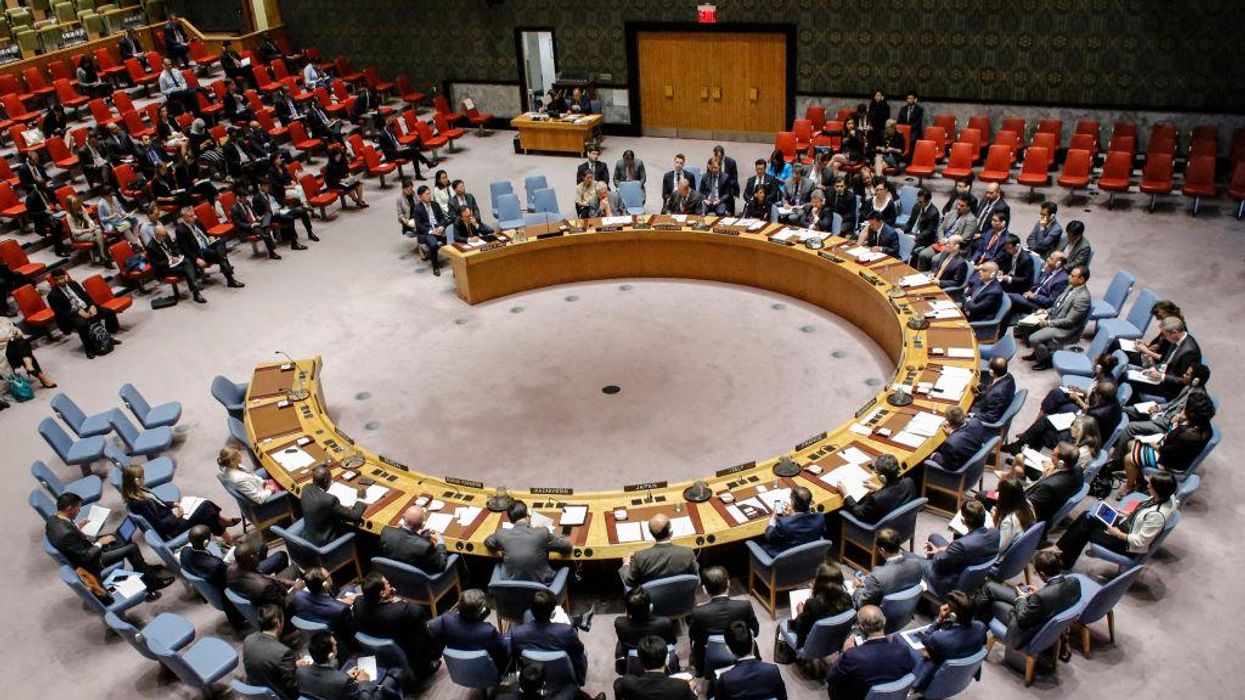
Photo by KENA BETANCUR/AFP via Getty Images

China and Russia vetoed a recent resolution in the United Nations (U.N.) sponsored by the U.S. that would have imposed new sanctions on North Korea for its continued launching of intercontinental ballistic missiles that can be used to carry nuclear weapons.
The Associated Press reported that the vote held by the U.N. Security Council had thirteen nations in favor and 2 opposed. China and Russia were the lone dissenters. China and Russia are among the five countries with veto powers on the Security Council. China and Russia’s move to veto the sanctions package marks the first serious division among the five veto-wielding permanent members of the Security Council.
In 2006, the security council unanimously imposed sanctions on North Korea after its first nuclear test explosion. Over the years these sanctions packages intensified, and so far there have been 10 resolutions unsuccessfully seeking to rein in North Korea’s nuclear and ballistic missile programs.
After vetoing the vote, Chinese and Russian representatives said that their countries oppose implementing more sanctions on North Korea while stressing the need for more dialogue between North Korean and American leadership.
U.S. Ambassador Linda Thomas-Greenfield expressed disappointment at the vote but indicated that she was not surprised. Thomas-Greenfield called North Korea’s 23 ballistic missile launches this year “a grave threat to international peace and security.”
Using the initials of the North Korea’s official name, she said, “The world faces a clear and present danger from the DPRK.”
The last sanctions resolution adopted by the U.N. Security Council in December 2017 member states committed to implementing further restrictions on petroleum exports to North Korea if it continued conducting ballistic missile launches capable of reaching intercontinental ranges.
Before this recent vote, Thomas-Greenfield urged council members to fulfill its commitment and act against North Korea’s renewed ICBM launches and its reinvigorated nuclear program.
China’s ambassador to the U.N., Zhang Jun, blamed the U.S. for not reciprocating North Korea’s “positive initiatives” during talks held between the two countries under the Trump administration in 2018 and 2019.
Jun said it was the U.S.’s responsibility to resume dialogue with North Korean leadership and find a diplomatic solution that advanced a peace treaty between North and South Korea in lieu of the longstanding armistice.
Zhang said, “The situation and the peninsula has develop to what it is today thanks primarily to the flip-flop of U.S. policies and failure to uphold the results of previous dialogues.”